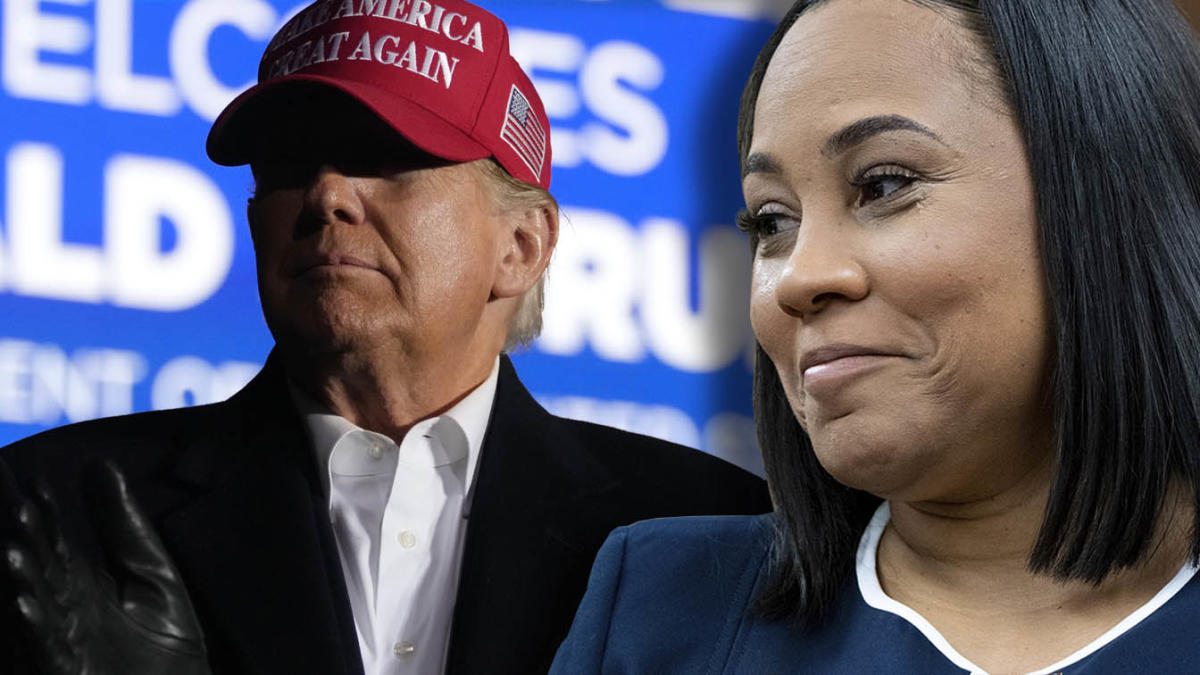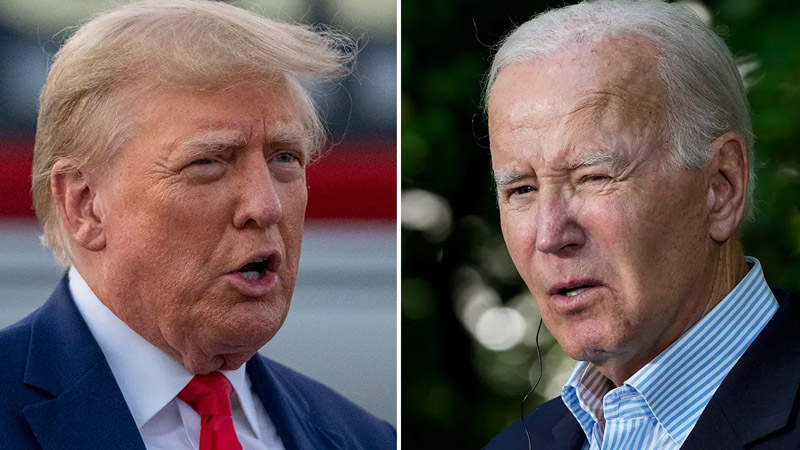Nathan Wade Speaks on Regret After Resigning Amid Trump Case Conflict

Photo Credit: (Ben Gray/Meg Kinnard/AP)
Donald Trump has made attempts to evade criminal charges by leveraging the personal relationship between Nathan Wade and Fulton County District Attorney Fani Willis. In light of these developments, Nathan Wade has recently voiced his regret about the situation. This statement marks Wade’s first public communication following an extended period of silence.
For several months, the legal community and public observers have been tuned into the complexities surrounding the election interference case against former President Donald Trump. This case, handled in Fulton County, took an unexpected turn due to the professional connection and ensuing controversy involving Nathan Wade, who served as a special prosecutor.
Wade’s involvement in the case came under scrutiny after his relationship with District Attorney Fani Willis was brought to public attention, suggesting a potential conflict of interest. ABC News highlighted this development on Sunday, noting that Wade’s resignation from the case was precipitated by a contentious debate over his eligibility to serve, given his connections with Willis.
“Wade, who resigned from the case last month following a judge’s ruling, conceded he had certain regrets about the relationship but defended the integrity of the case against Trump and others moving forward,” the report says. “‘Workplace romances are as American as apple pie,’ Wade told ABC News‘ Linsey Davis in an exclusive sit-down interview. ‘It happens to everyone. But it happened to the two of us.'”
Davis also asked if Wade “regretted” the relationship. “I regret that that private matter became the focal point of this very important prosecution,” Wade responded, according to the weekend report. “This is a very important case.” “I hate that my personal life has begun to overshadow the true issues in the case,” he is also reported to have said Sunday. Upon being asked if he ever thought to “pause” what he had with Willis, Wade said, “Absolutely.”
“‘Absolutely, absolutely. I’ll concede that that could have been, an approach,’ said Wade, who has since returned to private practice,” the report says. “‘But there again, when you are in the middle of it, these feelings are developing and you get to a point where the feelings are, are so strong that, you know, you start to want to do things that really are none of the public’s concern.'”
The debate culminated in a public disqualification battle, leading to his eventual step down from the position. The relationship between Wade and Willis was seized upon by Trump’s legal team as a strategy to challenge the legitimacy of the prosecutorial efforts, aiming to cast doubt on the fairness of the legal proceedings.
In his recent statement, Wade expressed regret about how the situation unfolded, particularly regarding how the relationship was perceived and its impact on the case. His decision to speak out comes after a reflective period, during which he reconsidered the ramifications of his continued involvement and the potential distractions it could cause to the integrity of the legal process, told the New York Post.
The case against Trump has been a focal point of national interest, raising questions about the boundaries of legal ethics and the implications for justice in politically sensitive cases. The controversy surrounding Wade’s role has added layers to the discussion, highlighting the delicate balance required in the legal profession between personal connections and professional responsibilities.
As Wade steps back from the limelight, the case continues to evolve, with new developments likely to keep it in the public eye. The intersection of law, politics, and personal relationships in this instance provides a poignant example of the challenges faced in maintaining judicial impartiality in the face of complex human dynamics.
This unfolding story underscores the ongoing debate over the influence of personal relationships on the administration of justice, especially in cases with significant political and public implications. As the legal proceedings against Trump proceed, the focus remains not only on the former president but also on the integrity of the legal system to handle such high-profile cases with fairness and without bias.


